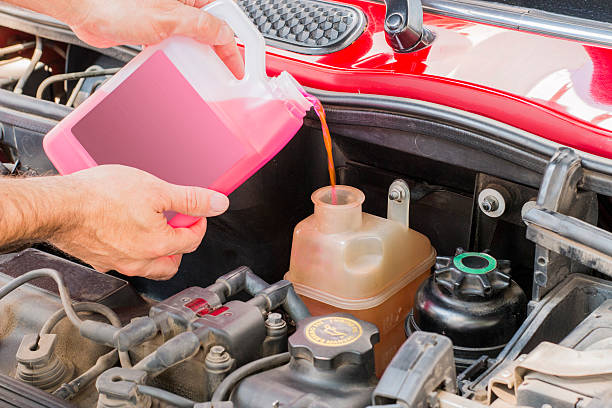When it comes to vehicle maintenance, transmission fluid is a vital component that often goes unnoticed. It plays a crucial role in the smooth operation of your vehicle’s transmission system. In this article, we will delve into what transmission fluid is, its functions, and why it is important for the overall performance and longevity of your vehicle.
Understanding Transmission Fluid
Transmission fluid is a specialized lubricant that acts as a hydraulic fluid in automatic and manual transmissions. It is designed to perform multiple functions, including lubricating moving parts, cooling the transmission system, and facilitating smooth gear shifts. Transmission fluid is typically a red or pink-colored fluid with specific viscosity and additives tailored to meet the requirements of each transmission type. These fluids are transmitted via a transmission tube called Tranny tube.
Importance Of Transmission Fluid
1. Lubrication And Heat Dissipation
One of the primary functions of transmission fluid is to provide lubrication to the intricate components within the transmission system. As the gears and other moving parts engage and disengage, transmission fluid coats these components, reducing friction and minimizing wear and tear. Additionally, the fluid helps dissipate the heat generated during operation, preventing overheating and damage to the transmission.
2. Facilitating Gear Shifting
In automatic transmissions, transmission fluid enables smooth and precise gear shifts. It ensures that the clutches and bands within the transmission engage and disengage seamlessly, allowing for efficient power transfer from the engine to the wheels. The right viscosity and consistency of the fluid are essential to maintain proper hydraulic pressure, ensuring accurate and timely gear changes.
3. Seal Conditioning And Protection
Transmission fluid also plays a crucial role in conditioning and protecting the seals within the transmission system. The fluid helps keep the seals pliable and prevents them from drying out or becoming brittle. This is important as damaged or deteriorated seals can result in fluid leaks, which can lead to transmission malfunctions and costly repairs.
about:blank
4. Contaminant Removal And Cleanliness
Transmission fluid acts as a cleaning agent, helping to remove contaminants and debris that can accumulate over time. It contains detergents and dispersants that prevent the formation of sludge and varnish within the transmission system. Regular fluid changes ensure that these contaminants are flushed out, maintaining the cleanliness of the transmission and preventing potential damage.
5. Maintenance And Longevity
Proper maintenance of transmission fluid is essential for the longevity and optimal performance of your vehicle’s transmission system. Over time, the fluid can break down and lose its effectiveness due to heat, friction, and contamination. Regularly checking and changing the transmission fluid according to the manufacturer’s recommendations can help extend the lifespan of the transmission, reduce the risk of costly repairs, and maintain smooth operation.
Importance Of Using The Right Fluid
Using the correct type of transmission fluid is crucial to ensure the proper functioning of the transmission system. Different types of transmissions require specific fluid formulations to meet their unique operating requirements. Using the wrong fluid can lead to inadequate lubrication, compromised performance, and even severe damage to the transmission. Consult your vehicle’s owner manual or seek professional advice to determine the right type and specification of transmission fluid for your vehicle.
Conclusion
Transmission fluid is an often overlooked but vital component of your vehicle’s transmission system. Its functions include lubrication, heat dissipation, facilitating gear shifting, seal conditioning, contaminant removal, and promoting cleanliness. Regular maintenance and using the correct type of transmission fluid can significantly contribute to the longevity and optimal performance of your vehicle. Make sure to adhere to the manufacturer’s recommendations and consult professionals when necessary to ensure that your transmission system operates smoothly for years to come.






